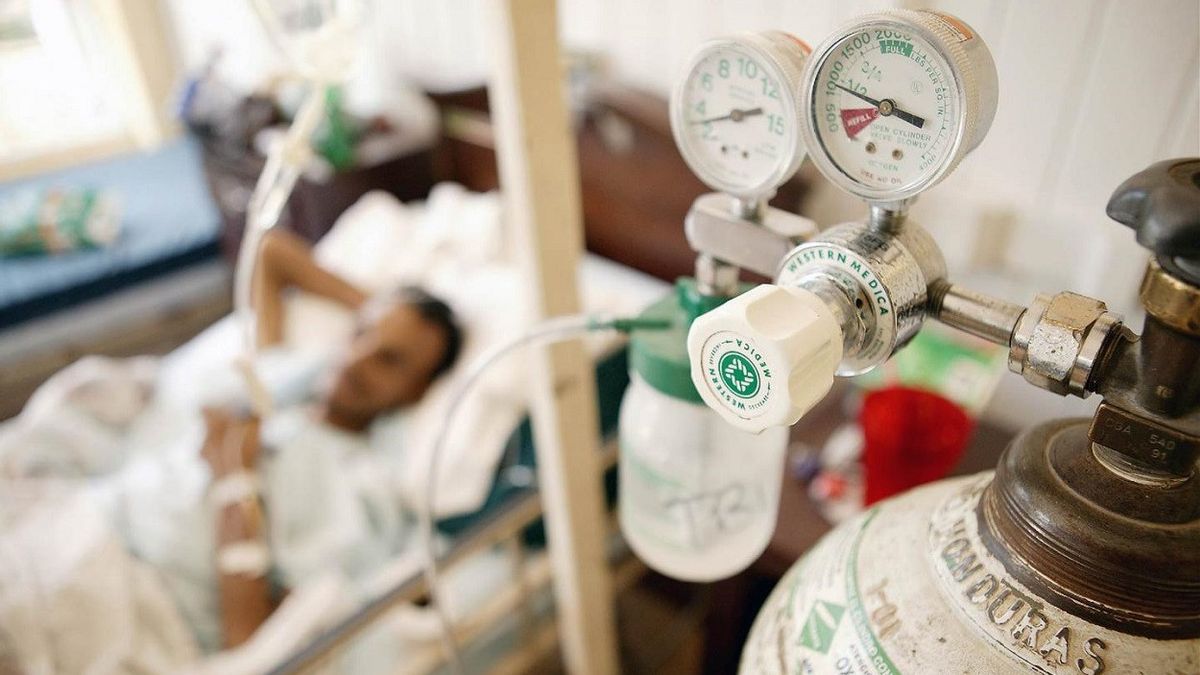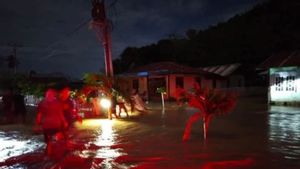JAKARTA - The risk of death, hospitalization, and serious health problems due to COVID-19, jumped significantly with reinfection compared to the first infection, despite vaccination status, a study published on Thursday showed.
"Reinfect with COVID-19 increases the risk of acute and long-term results," said Dr. Ziyad Al-Aly of the Washington University School of Medicine in St. Louis.
"This is evident in people who are not vaccinated, vaccinated and who have received booster doses."
The findings were taken from data from the United States Department of Veterans Affairs (VA) collected from March 1, 2020, to April 6, 2022, on 443,588 patients with one SARS-CoV-2 infection, 40,947 with two infections or more, and 5.3 million people who were not infected. Most of the research subjects were male.
Reinfected patients have more than double the risk of death and more than three times the risk of hospitalization, compared to those infected with COVID only once.
They also have a high risk for lung problems, heart, blood, kidney, diabetes, mental health, bones and muscles to neurological disorders, according to a report published in 'Nature Medicine'.
"Even if someone had previous infections and was vaccinated, which means they had double immunity from previous infections plus vaccines, they were still vulnerable to adverse outcomes after reinfection," said Al-Aly, study lead.
People in research with repeated infections are more than three times more likely to develop lung problems, three times more likely to suffer from heart conditions and 60 percent more likely to develop neurological disorders than patients who have been infected just once.
The higher risk stood out the first month after reinfection, but still seen six months later, the researchers found.
Separately, experts who were not involved in the study said the VA population did not reflect the general population.
Patients at VA health facilities are generally older, sick and often male, a group that usually has more than normal health complications, said John Moore, a professor of microbiology and immunology at Weill Cornell Medical College, New York.
The researchers said the cumulative risk and repeated infection burden increased with the number of infections, even after taking into account differences in the COVID-19 variants such as Delta, Omicron and BA.5.
However, Dr. Celine Gounder, an epidemiologist for infectious diseases and editor attenuated Health News, said there appeared to be a "traguide effect with multiple infections," with a slight jump in risk after the second infection.
"The good news is, people who are better protected by immunity, the risk of developing some complications will be lower than time," he added.
However, Al-Aly warned that people should not be careless.
"We started to see a lot of patients coming to the clinic in an unbeaten atmosphere," he told Reuters.
"They were wondering, 'Has reinfection really happened?' The answer is yes, it really happened."
Ahead of the holiday season getting closer to travel and indoor gatherings, "people should be aware that reinfection is a consequence and should take precautions."
The English, Chinese, Japanese, Arabic, and French versions are automatically generated by the AI. So there may still be inaccuracies in translating, please always see Indonesian as our main language. (system supported by DigitalSiber.id)













